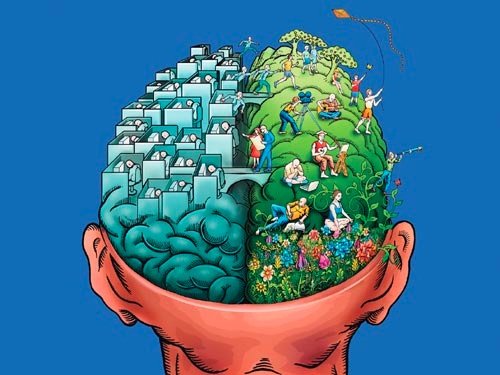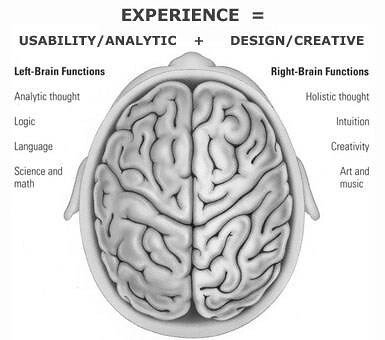Debunking the Myth of Right vs. Left Brain Dominance: The Collaborative Power of Our Cerebral Hemispheres
Have you argued with people over which side of the brain is dominant, with the argument that people who are more dominant on the right brain side are spontaneous, intuitive, and creative, while people who are dominant on the left side of the brain are logical and analytical. If you have had that argument, then I must bet that you would want answers and in this post, I will sure give you answers.
The human brain is actually divided into the left and right side, and it is easy to differentiate it since the brain is divided into two hemisphere. While this hemisphere can be seen the left side of the brain control the right side of the body, while the right side of the brain controls the left side of the body. Scientists are still trying to understand the reason for the criss-crossing but there have been several theories such as the Somatic Twist model that says that the body of our early ancestors went on a 180-degree twist relative to the brain. While this sounds unclear to me, there are other ones like the Axial twist hypothesis that says that our evolutionary ancestors were born with heads 90 degrees to their body and the body twisting 90 degrees the other way in relation to the brain.

flickr
Asides from one side of the brain controlling the other side of the body, and so on, certain side of the brain control certain cognitive functions in the body more than the other side such as language tilting more to the left side of the brain and attention towards the right side. If you have been opportune to see people with damages on one part of the brain, then you would understand how this sides impact the body. A person who has a stroke on the right side of the brain can experience paralysis on the left side of the body and vice versa. Also, when a stroke occurs in the right hemisphere of the brain, it can induce impulsive behaviors, and visual problems, while when a stroke occurs in the left hemisphere, there can be speech problems, and motor control.
However, it’s crucial to understand that we don't have "two brains." The two hemispheres are intricately connected by the corpus callosum, allowing for communication and integration of functions. This connection underscores the importance of both hemispheres in harmonious operation.

flickr
Both sides of the brain is very important with the right side handling left visual field projection, spatial perception, non-verbal concept formation, and word comprehension, while the left dealt with analytical and verbal responsibilities like speech, writing, calculation, and right visual field projection. To understand that both sides are important, if the right hemisphere is removed, a person can read a particular word but will not be able to imagine what the word is. When it comes to language and understanding it, both sides of the brain work together and this holds for most cognitive activity including logic and creativity.
When solving arithmetic, we would agree that it is a logical activity than a creative activity, so based on that myth we would believe that the left brain would be the one to do this job rather than the right brain but this isn't so. The right hemisphere helps to know the numbers of objects but the left hemisphere is important when counting objects. With this, both hemispheres works together.
The notion of right-brain or left-brain dominance is an oversimplification of the complex, interdependent workings of our cerebral hemispheres. Our brain's true genius lies in its collaborative approach, where both hemispheres contribute to a wide range of cognitive abilities, from logical reasoning to creative thinking. This holistic synergy is what makes the human brain remarkably versatile and capable, far beyond the confines of a one-sided dominance narrative.
Reference
https://www.npr.org/sections/13.7
https://www.britannica.com/story
https://www.health.harvard.edu
https://dana.org/resources/right-brain-left-brain-a-misnomer/
https://www.theguardian.com/commentisfree
https://educationalgames.nobelprize.org
https://www.abc.net.au/science/articles/2004/06/24/2856996.htm
https://www.sciencealert.com
https://pubmed.ncbi.nlm.nih.gov/24040928/
https://www.livescience.com